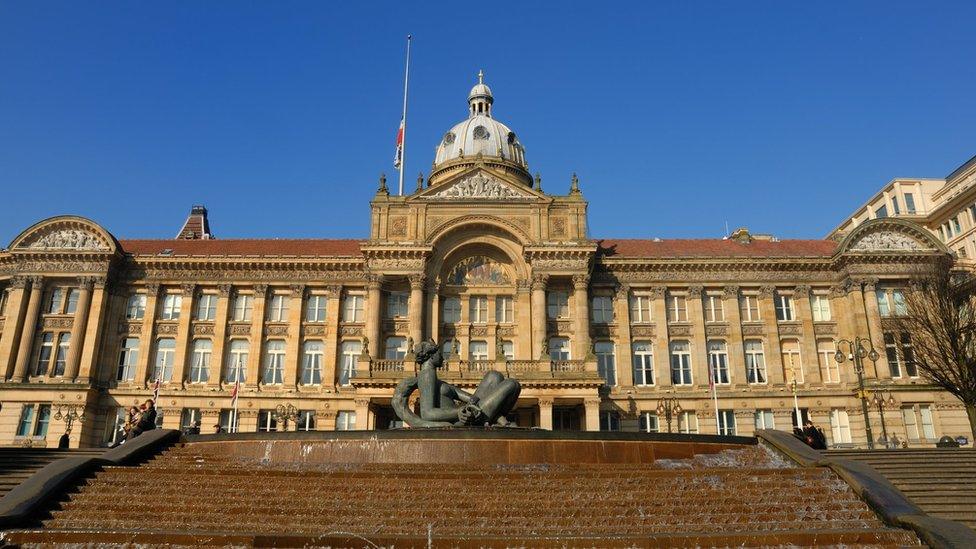Birmingham City Council's recovery likely to be 'brutal and painful' - expert
- Published
- comments

The council is facing a £760m bill to settle equal pay claims
Council tax rises, job losses, service cuts and asset sales are likely to be required as part of Birmingham City Council's recovery plan, a financial report for the authority has warned.
It follows the government's decision on Tuesday to intervene in the running of the local authority.
One expert said the council's problems could be remedied, but the cure was likely to be "brutal" and painful.
All options will be considered, council leader John Cotton has said.
The local authority officially has five days to respond to the government's intervention, but has said it welcomed the move.
Some, including West Midlands Mayor Andy Street, have suggested the council could sell assets including its stake in Birmingham Airport and some of the land it owns.
"There is a lot of concern about a whole number of issues at the moment, and understandably so," said Mr Cotton.
"We will look at all of these issues on their merits, but what I want to ensure is that we are protecting the things that the people of this city value," he said.
Commissioners who will oversee the council, with powers to make decisions directly, were expected in the city "in the coming couple of weeks," said the Labour council leader.

Council assets include the city's £189m public library, the largest of its kind in Europe
The local authority issued a section 114 notice on 5 September, effectively declaring bankruptcy, mainly due to a bill to settle equal pay claims which is expected to be about £760m.
The introduction of a new IT system, which has come under fire, has also seen expected costs spiral from £19m to £100m.
A budget shortfall for the current financial year stands at £87m, but is projected to rise to £165m in 2024-25.
Mayor Andy Street said the council urgently needed to find cash and should "definitely" consider selling off assets including land.
"They do have huge development sites that could be sold to the private sector relatively quickly," he said.
"As a proud Brummie" he said the headlines had been "bad news" for the city's reputation.
"In the past week I've had to go to present to boards who are investing here to keep their confidence," he explained.
"I've had [them] sitting in my office saying 'should we still be doing this' and I keep saying of course you should, nothing has changed about Birmingham's potential, its people, its capability, this is a financial issue within the council."
'Hard choices'
An extraordinary general meeting of the full council is due to be held on Monday to discuss a financial recovery plan.
In a report released ahead of it, chief executive Deborah Cadman said work to address problems "must be urgent, will involve hard choices about what we deliver and how we operate".
"Our organisational shape and size is now out of balance with our income," she added.
A "redesign" of council services was therefore required resulting in a "smaller organisation that employs fewer people".
"In some cases this is likely to involve transfers of services and assets to other organisations," she said.
Jonathan Carr-West, chief executive at the Local Government Information Unit, said the government's move had come as "no surprise" but indicated "a lot of pain to come".
"There's no doubt that commissioners can turn around a council's finances, but the cure can be pretty brutal," he added.
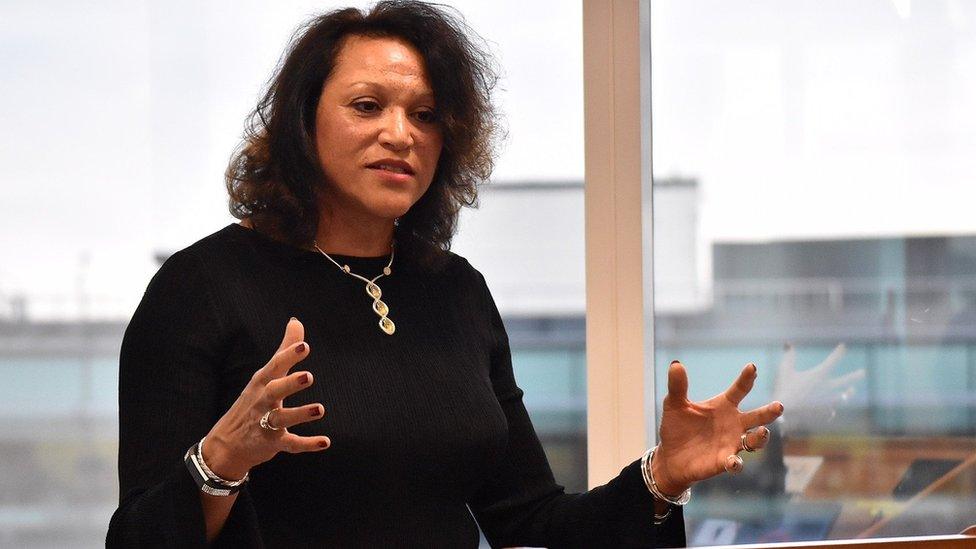
Council chief executive Deborah Cadman said a "redesign" of services was necessary
Thurrock, Croydon, Slough and Northamptonshire have issued section 114 notices in recent years.
Former director of policy for the Labour Party and i paper columnist, Andrew Fisher, warned Birmingham residents to brace themselves for what was coming.
The Croydon resident said his area had experienced a 15% rise in council tax this year following the local council's bankruptcy.
"We've had hundreds of job cuts, cuts to our social care budgets - those who look after the elderly and disabled - housing services have been cut, council rents have gone up by seven per cent, and that was on top of the council tax increase," he explained.
Local voluntary sector funding had also been cut affecting homeless and mental health services.
"Local nursery schools are being closed, including one with provision for children with specialist educational needs," he added.
"In reality the only thing that is going to solve this is more funding being put into local government to make up for what's been taken away over the last 13 years.
"This is a very grim situation."

Follow BBC West Midlands on Facebook, external, Twitter, external and Instagram, external. Send your story ideas to: newsonline.westmidlands@bbc.co.uk, external
- Published19 September 2023
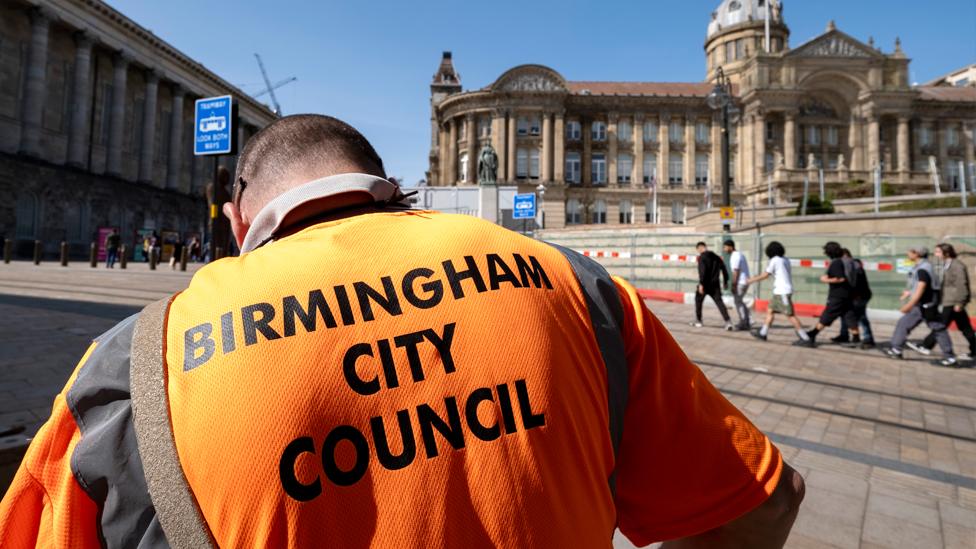
- Published19 September 2023
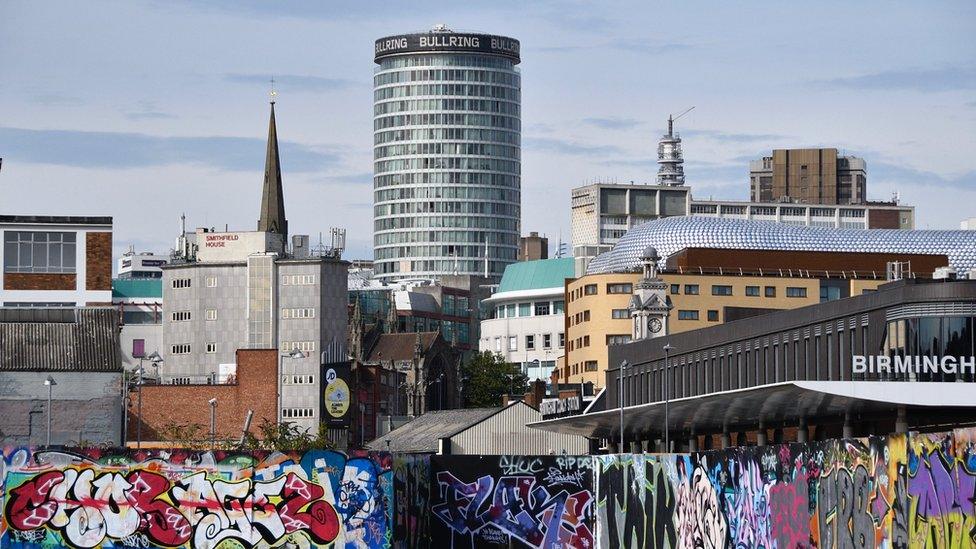
- Published17 September 2023

- Published6 September 2023
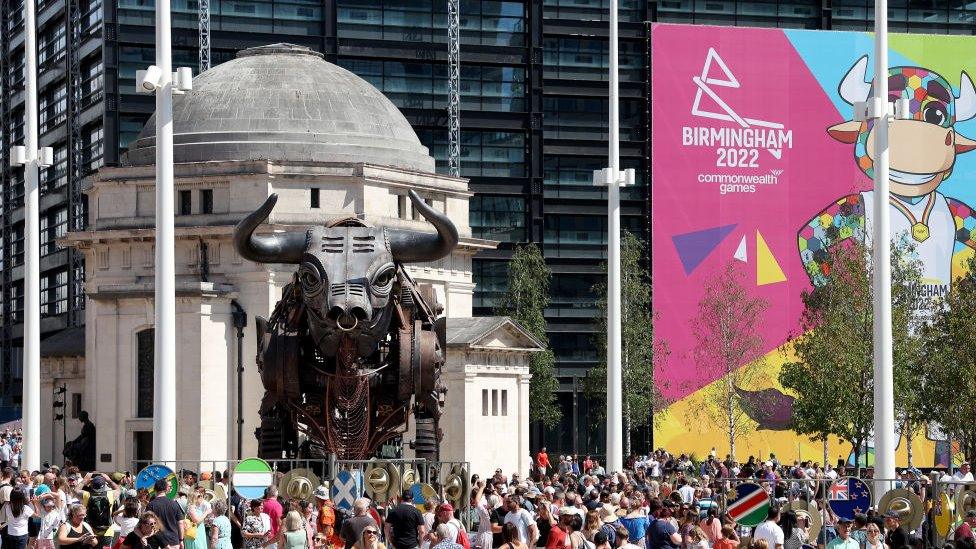
- Published5 September 2023

- Published7 July 2023
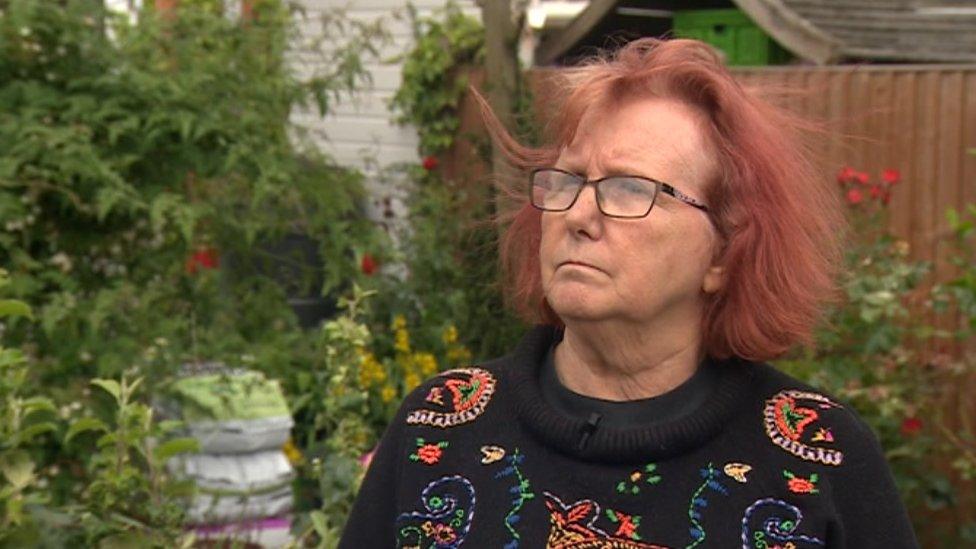
- Published20 June 2023
